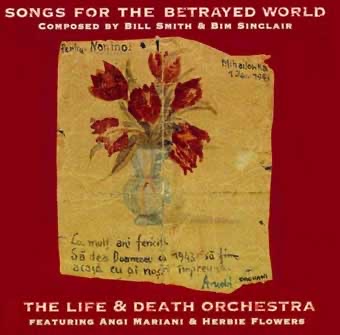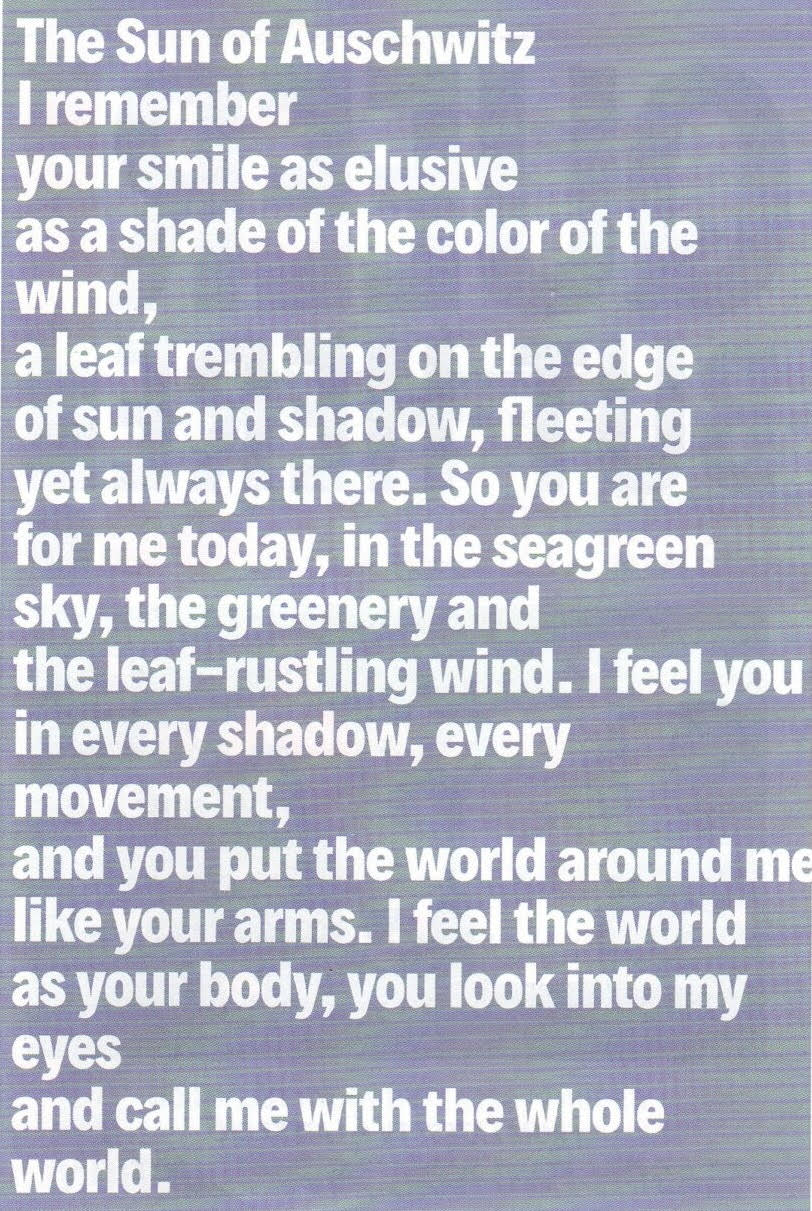Art about Auschwitz – Looking back at ‘Songs for the Betrayed World’
Can there be art about Auschwitz? Of the 1.3 million people sent to the concentration camp, 1.1 million were murdered. In addition to the 960,000 Jews who were slaughtered by a government that deemed an entire race criminal, 74,000 ethnic Poles, 21,000 Roma, 15,000 Soviet prisoners of war, and up to 15,000 other Europeans were victims of the camp. The site is emblematic of a genocide so brutal, so inhuman that Theodor W. Adorno’s famous claim that ‘after Auschwitz, poetry is barbaric’ rings with the hollow truth of a man who understands the relationship between trauma and speechlessness. ‘Songs for the Betrayed World’, a collection of songs based on the words and poetry of Auschwitz survivors, offers an alternative.
The seeds of the album where first sown when Latest Bill was gifted a copy of Daniel Weissbort’s anthology The Poetry of Survival by chance. Touched by the poignant work, Bill found himself seeking out more translations, to which he eventually added melody. Working with well-known Jewish composer Bim Sinclair, the two went about taking the words of Auschwitz survivors and setting them to music. After reaching out to a symphony of accomplished artists who were equally moved by the project, The Life and Death Orchestra was born.

The orchestra features the likes of bass extraordinaire Herbie Flowers, an artist known for working on more British hits than any man alive, Ian Hamer, a trumpeter who played on the Beatles’ infamous ‘Gotta Get You Into My Life’, and Nick Pynn, whose musical prowess can be irrefutably proven by his innumerable session musician credits. With Angi Mariani and Bill on vocals, the album offers over twenty tracks, each as moving as the next.
While Adorno might claim ‘poetry is barbaric’, the work of Bill, Bim and the orchestra presents a different answer. In the face of first hand testimonials rife with pain, atrocity and barbarism, the need to bear witness shines through. The clear voices present in each track portay the expression of a victim who used art to assert their humanity, despite existing in a world that denied them it. Above all, however, the album has one aim: to ensure we never forget.

The opening track, ‘Never’, plunges the listener into the perspective of a survivor and her unbelievable reality. Based on the words of survivor Micheline Maurel’s book ‘Ravensbrück’, it’s vocals break down as the speaker grieves that ‘Never can I look into a stranger’s face/ All trust is lost, all the world betrayed’. We hear her mournful words again in the track ‘Be Happy’, a song adaptation of a segment of her book which begs ‘you who torture yourselves over metaphysical problems, and who suffers money worries […] you who die a death as normal as life […] be happy, all of you: millions of people envy you.’ These words are just a glimpse of the unbelievable pain attested to throughout the album.
A cacophony of individual stories haunt ‘Songs for the Betrayed World’. The work contains the writings of some of the greatest writers of the 20th century; Tadeusz Borowski inspires 15 minute long track ‘This Way for the Gas, Ladies and Gentleman’ based on his masterpiece by the same name. The album features the words of Eastern European poets Zbigniew Herbert and Reiner Kunze, both of whose work was banned in their own countries.
‘Songs for the Betrayed World’ is a piece of art like none other. Each track peeks into a the life of a survivor whose experience is so inconceivable that it deserves its own album, and so horrifically familiar in the world of Holocaust survivors that the entire album is overwhelmingly poignant.
Ultimately, the work does was it set out to do, be unforgettable.
Purchase the album here.
Find out more about the opera here.
Word By Kate Bowie



















